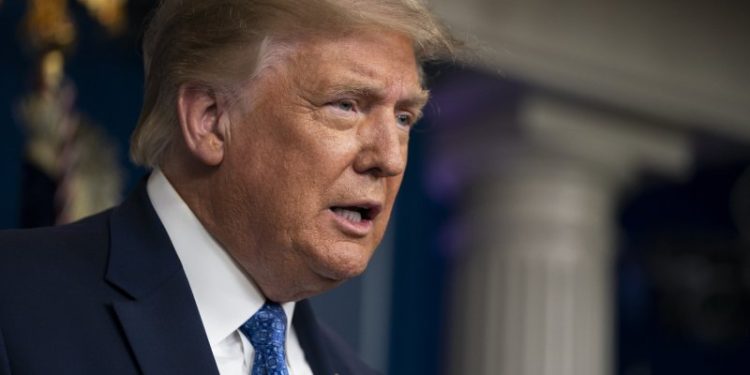On Thursday, former President Trump delivered a blunt warning, expressing concerns over a potential widespread departure of businesses from New York in the event of an unfavorable outcome in the ongoing fraud case spearheaded by New York Attorney General Letitia James.
“Businesses are watching this case,” President Trump told reporters outside a Manhattan courtroom on Dec. 6. “No business will go back into New York, no business will frankly stay in New York, some businesses are talking about leaving New York because of this action, this very serious action.”
At the core of the ongoing case are allegations directed at former President Trump and his company, The Trump Organization, accusing them of artificially inflating assets and net worth in interactions with banks and insurers.
The presiding judge, who has already established Trump’s liability for fraud through a summary judgment, is currently deliberating on remaining claims, such as conspiracy, insurance fraud, and record falsification. Despite facing these legal challenges, Trump, a prominent contender for the Republican nomination in the 2024 presidential race, vehemently refutes any wrongdoing. He frames the case as a politically motivated endeavor designed to undermine his political future.
Trump, addressing the allegations on Thursday, reiterated his stance that no wrongdoing had occurred, dismissing the case as a politically driven “witch hunt.” He pointed to testimony from a Deutsche Bank executive that aligned with his defense, emphasizing the bank’s routine adjustments to client asset values.
During the proceedings, David Williams, a Deutsche Bank executive involved in loan transactions with Trump, provided crucial testimony on the bank’s practices. He underscored the common industry practice of making subjective adjustments to asset values, emphasizing the inherent subjectivity in assessing net worth. Williams emphasized that financial statements submitted by clients often rely on estimations and are subject to adjustments, which Deutsche Bank routinely performs.
The New York Attorney General, Letitia James, seeks to recover approximately $250 million, alleging that Trump exaggerated his asset value to secure favorable loan terms. However, Williams’ testimony shed light on the bank’s perspective on asset values, revealing discrepancies between Trump’s reported net worth and the bank’s evaluations. Williams clarified that such variations are standard industry adjustments rather than clear indications of fraud.
Trump, consistently emphasizing the substantial interest income earned by lenders, including Deutsche Bank, argues that the value of his brand significantly inflates his net worth beyond the figures presented in The Trump Organization’s financial statements.
During the trial, Trump consistently criticized the lawsuit, branding it as a witch hunt, election interference, and a disgrace to America. These sentiments were reiterated by the former president after his recent appearance in court.
 Telegram is where we really talk. Don't miss out!
Telegram is where we really talk. Don't miss out!








